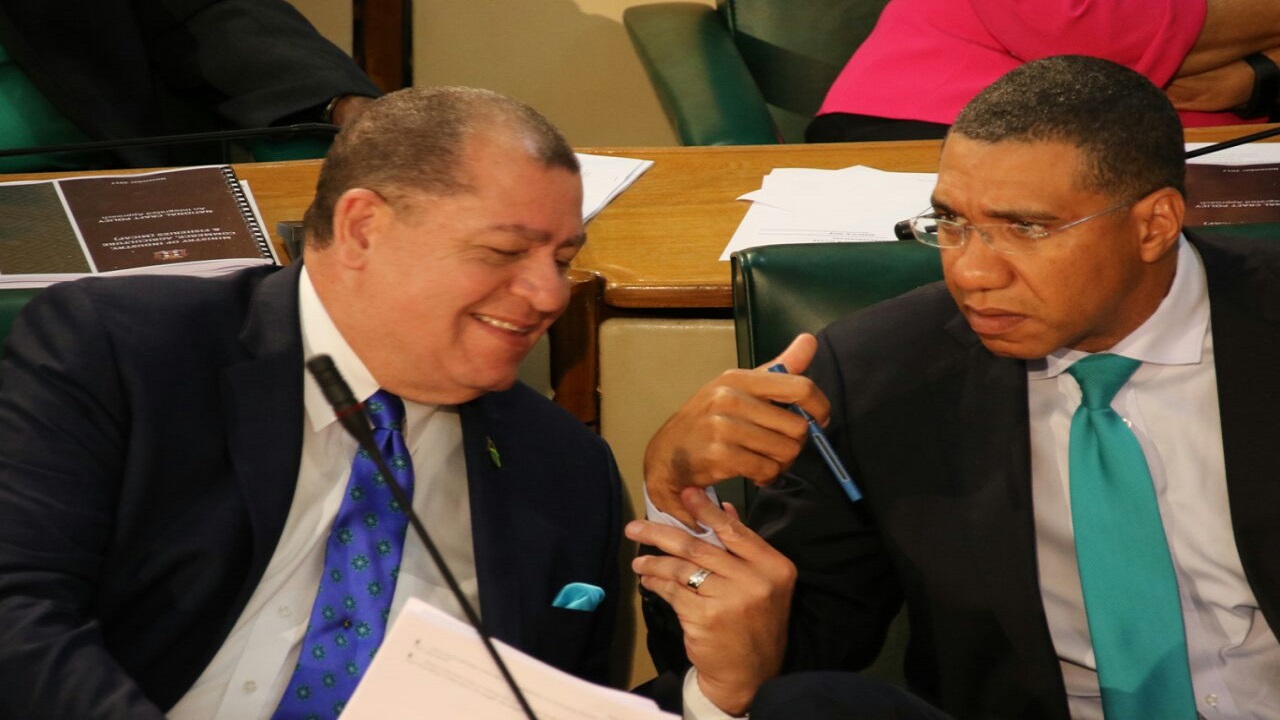Finance Minister, Audley Shaw, has indicated plans to lower custom duties, following improved compliance in revenue collections at the nation’s ports.
Shaw said a priority of the Government, following a decision not to impose new taxes for the fiscal year, is to improve tax compliance.
“The emphasis in the new fiscal year is not on putting on additional taxes; the emphasis is that we are going to emphasise compliance; it’s not just for revenues, it’s for the nation’s security,” Shaw said.
Speaking at a post-Budget press briefing at Jamaica House on Friday, Shaw said once the Government “plugs the hole of illicit imports that robs the treasury, that robs the customs, then we can reach to a point where can actually lower the rate of custom duties,”
“If everybody complies, and everybody pays, then we can have low rates, and that is an objective that I have,” Shaw said.
He went on to say that the aim is to have 100 per cent, state-of-the-art scanning of all containers entering the island, which could result in as much as 40 per cent increase in revenue for customs.
“We are going to cut down (on) corruption and the illegal importation of things like cigarette and a lot of things that are robbing the country of revenue,” Shaw said.
On the matter of tax compliance, he told the House of Representatives during his Budget presentation on Thursday, that the Government will lower penalties and interest charges on tax delinquents in a bid to improve compliance.
He said the measure was being implemented as the Government continues to face significant challenges with tax compliance, with property tax arrears alone being in the region of $14 billion. This is despite that fact that tax collections are running ahead of budget, and despite the fact that some 15,000 new taxpayers were brought into the tax net last year.
Shaw also expressed confidence that the decision to not implement additional revenue measures will not impact the Government’s ability to meet International Monetary Fund (IMF) targets under the economic reform programme.
In fact, the current budget has received the support of the IMF.
“The broad strokes of the programme have been achieved in terms of achieving debt reduction and the necessary primary surplus to go with it, so it is in that line that we support the current budget,” said Head of the IMF Mission Team to Jamaica, Dr Uma Ramakrishnan.
Ramakrishnan, who was speaking at the IMF’s third review of Jamaica’s standby arrangement with the fund, held in conjunction with the post-Budget briefing, said the economic reform programme that started in May 2013, has been a turning point for Jamaica.
“(The) Jamaican Government, both administrations, have embarked on a path of fiscal discipline, public sector reforms and wide-ranging structural improvements to break (a) decades-long cycle of high debt and low growth,” she said.
On the other hand, growth in social outcomes have been somewhat discouraging, according to Ramakrishnan.
“Obstacles, including crime, bureaucratic processes, insufficient labour force skills, and poor access to finance, continue to hinder productivity and growth,” she added.










